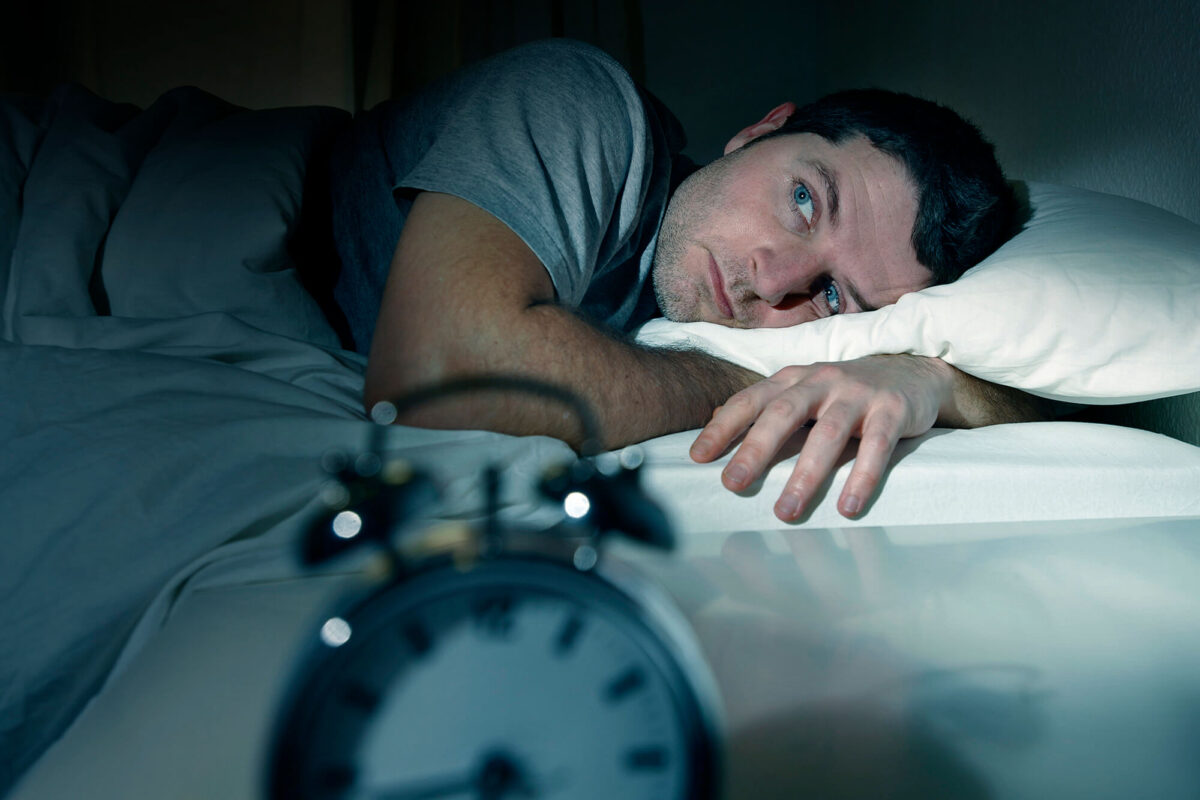A good night’s sleep is crucial for overall health, but your dinner habits might be sabotaging it. From overeating to dining at the wrong times, consuming spicy dishes, or indulging in processed foods and sweets, these habits can all interfere with your ability to get quality rest. Understanding these impacts can help you make better dietary choices to ensure a more restful sleep.
Eating Too Much at Dinner

Eating too much at dinner is one of the habits that can negatively affect sleep, with several adverse effects as follows:
- Causing discomfort: Overeating makes your stomach feel full and heavy, creating discomfort, making it difficult to relax and fall asleep easily.
- Causing acid reflux: When your stomach is full, the risk of acid reflux increases, especially if you lie down right after eating. This not only causes a burning sensation but also disrupts your sleep.
- Reducing sleep quality: The digestive system has to work hard to digest a large amount of food, preventing the body from fully relaxing and transitioning into rest mode. This results in interrupted and shallow sleep.
- Raising body temperature: The digestion process increases body temperature, whereas deep sleep requires a lower body temperature. This makes it harder to maintain continuous and quality sleep.
- Causing digestive issues: Overeating at night can lead to problems such as bloating, indigestion, and stomach pain, all of which disrupt your sleep.
To ensure a good night’s sleep, you should eat a moderate dinner, choose easily digestible foods, and avoid eating too close to bedtime. This way, you can ensure your body is relaxed and ready for a deep, restorative sleep.
Eating Dinner Too Early or Too Late
The timing of dinner significantly affects sleep quality. Here are the impacts of having dinner too early or too late on sleep:
Eating Dinner Too Early
- Feeling hungry before bedtime: If you eat dinner too early, you may feel hungry before bed, which can disrupt sleep or make it hard to fall asleep.
- Lack of energy in the evening: Eating dinner too early can make you feel low on energy in the evening, affecting your alertness and performance.
Eating Dinner Too Late
- Difficulty digesting: Eating dinner too late can cause indigestion and a heavy feeling when you lie down, making it hard to sleep.
- Increased risk of acid reflux: Lying down right after eating can increase the risk of acid reflux, causing heartburn and discomfort, disrupting sleep.
- Weight gain and metabolic issues: Late-night eating can lead to weight gain and metabolic problems because the body doesn’t have enough time to digest and process the food before sleeping.
Recommendations
- Ideal dinner timing: Aim to have dinner at least 2-3 hours before bedtime. This allows your body enough time to digest the food and avoid digestive issues during sleep.
- Choose easily digestible foods: Eat light and easily digestible dinners, avoiding fatty, spicy, or caffeinated foods.
- Eat a light snack if necessary: If you feel hungry before bed, opt for a light snack like a banana, some yogurt, or a few nuts.
It’s important to listen to your body and adjust your eating habits to fit your schedule and needs.
Eating Spicy Foods at Dinner

Eating spicy foods for dinner can negatively affect your sleep. Here are some adverse effects and reasons why you should limit spicy foods in the evening:
Negative Effects of Spicy Foods on Sleep
- Causing indigestion: Spicy foods can irritate the stomach and increase acid production, leading to indigestion and stomach pain, causing discomfort and difficulty sleeping.
- Increasing risk of acid reflux: Spicy foods can relax the lower esophageal sphincter, leading to acid reflux. Symptoms include heartburn and a burning sensation in the chest, waking you up or preventing restful sleep.
- Raising body temperature: Spicy foods can increase body temperature, causing discomfort and disrupting sleep. A cooler body is more conducive to falling asleep.
- Causing thirst: Spicy foods can make you feel thirsty and need to drink water frequently, potentially waking you up during the night to drink water, affecting continuous sleep.
Recommendations for Eating Spicy Foods
- Limit spicy foods in the evening: If you enjoy spicy food, try to eat it at lunch or earlier in the day to give your body enough time to digest before bed.
- Choose milder spices: If you can’t give up spicy food entirely, choose milder spices or use less spicy seasoning to reduce the negative effects.
- Combine with easily digestible foods: Pair spicy foods with easily digestible foods like green vegetables, rice, or bread to lessen the impact on your stomach.
- Stay hydrated throughout the day: Ensure you drink enough water throughout the day to avoid nighttime thirst when eating spicy foods.
Listening to your body and adjusting your eating habits to match your health needs and preferences is crucial. If sleep issues related to diet persist, consult a doctor or nutritionist.
Eating a Lot of Processed Foods and Sweets

Eating a lot of processed foods and sweets in the evening can negatively impact your sleep. Here are some negative effects and reasons why you should limit these foods at night:
Negative Effects of Processed Foods and Sweets on Sleep
- Causing indigestion and a heavy feeling: Processed foods often contain high levels of fat, salt, and additives, making the digestive system work harder, leading to indigestion and a heavy feeling at bedtime.
- Increasing risk of acid reflux: Fast food and processed foods can relax the lower esophageal sphincter, causing acid reflux and heartburn, disrupting sleep.
- Sudden spike in blood sugar: Sweets contain a lot of sugar, which, when consumed at night, can cause a sudden spike in blood sugar levels, leading to energy fluctuations and difficulty sleeping.
- Weight gain and health issues: Consuming a lot of processed foods and sweets at night can lead to weight gain and health problems like diabetes and heart disease, affecting sleep quality.
- Causing discomfort and alertness: Sugar and other stimulants in sweets can make you feel alert and uncomfortable, making it difficult to fall asleep.
Recommendations for Consuming Processed Foods and Sweets
- Limit consumption in the evening: Try to limit processed foods and sweets in the evening. If you want to eat them, choose an earlier time in the day to give your body enough time to digest.
- Choose natural and nutritious foods: Instead of processed foods, opt for natural, nutritious foods like vegetables, fresh fruits, whole grains, and quality protein sources.
- Eat light before bed: If you feel hungry before bed, choose healthy and light snacks like a banana, some yogurt, or a few nuts to avoid disrupting sleep.
- Stay hydrated throughout the day: Ensure you drink enough water throughout the day to maintain hydration and help your body function efficiently.
Healthy Alternatives
- Fresh fruits: Fruits like apples, pears, and bananas provide energy and contain many vitamins and minerals.
- Green vegetables and salads: Green vegetables are rich in fiber and vitamins, improving digestion without causing a heavy feeling.
- Whole grains: Whole grains like oats, quinoa, and brown rice provide sustainable energy and don’t cause sudden spikes in blood sugar levels.
- Yogurt: Yogurt is a good source of protein and can improve digestion, especially low-sugar or unsweetened varieties.
Building healthy eating habits is important to support good sleep and overall health. If sleep problems related to diet continue, consult a doctor or nutritionist for specific advice.
Drink 2 glasses of Bneuron every day, in the morning and evening, to fully supplement DHA, Lactium, Vitamins, Passionflower Extract, etc. This helps reduce stress, relax the nervous system, and provides quality sleep and overall health.




